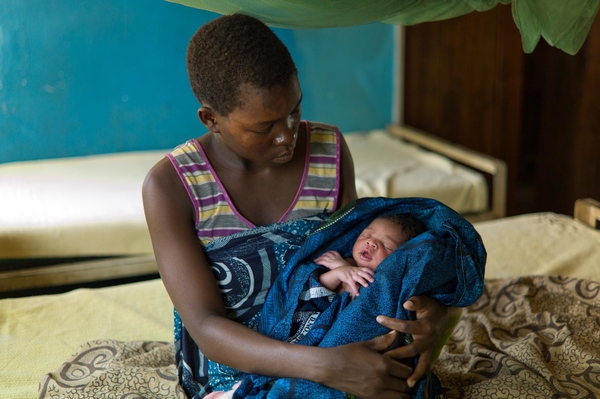Health facilities need to have access to water, sanitation, energy, as well as supplies of medicines and equipment to deliver quality care to women and newborns. These pre-requisites are a part of the WHO standards for improving quality of maternal and newborn health in health facilities. Since 2016 the Deliver Life project in Malawi, run by WaterAid and supported by the UK’s Department of International Development (DfID) and WaterAid UK through a Match Fund, has been providing a comprehensive package of water, sanitation and hygiene services in 16 health facilities in the rural districts of Kasungu, Nkhotakota and Machinga. The project aims for these facilities to have safe and adequate water, adequate and inclusive toilets and waste management receptacles, while also ensuring that expectant women have privacy and dignity when seeking care.
Deliver Life is not just modelling service delivery, but also looking to generate citizen empowerment: the project is engaging with the communities, in particular women’s groups to empower them to demand better health services and express what quality care means to them. It also aims at sector strengthening, with a focus on identifying whether the WASH targets and indicators were adequately incorporated into the national policies, framework and coordination mechanism on maternal and newborn health.
So far, Deliver Life has resulted in a reduction of sepsis cases, stronger motivation of the health workers, who also struggle to do their job without proper access to WASH, and an increase in the community demands for maternal health services.
Over 16,600 community members now practice handwashing with soap while over 20,000 community members have been empowered to not only know, but demand their rights to a healthy living through provision of WASH services. This is in addition to more than 25,000 people who now have access to improved sanitation and over 12,500 accessing safe water. Deliver Life has also reached more than 123,000 people through a hygiene behaviour campaign.
Listen to Natasha Mwenda, Manager of the Deliver Life project in Malawi, explain how increased access to water, sanitation and hygiene impacts quality of care for mothers and newborns: bit.ly/Malawi2-story
Photo: Wyness Theu sits for a portrait with her one-day old baby at the Mpamba Health Centre in the Mpamba Area in Nkhata Bay district in the Northern Region of Malawi in October 2012. ©UNICEF/Nesbitt


